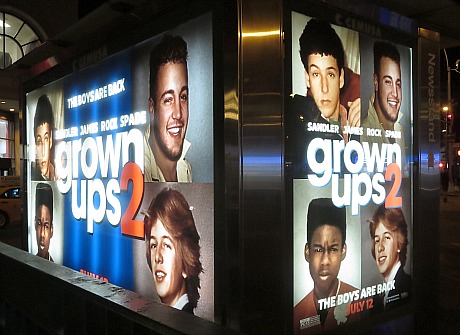Name one film directed by a celebrated director of photography (in this instance Wally Pfister) that became a critical and commercial knockout…just one. Name one successful film in which the lead protagonist (played here by Johnny Depp) is killed early on or otherwise doomed a la D.O.A. — people want their heroes to live and fight and see it through. Name one box-office handicapper who doesn’t think Depp’s box-office power-punch rep (a) was over-rated all along due to the uniquely weird Pirates franchise and/or (b) is definitely over in the wake of the El Flopperoony of The Lone Ranger.


